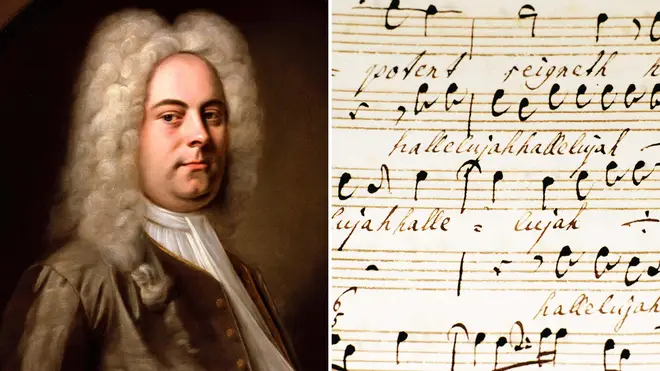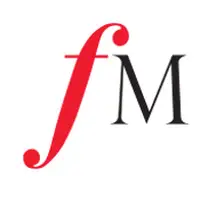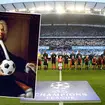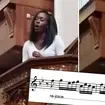10 of Handel’s best pieces of music
23 February 2024, 14:52 | Updated: 23 February 2024, 17:03

George Frideric Handel was one of the Baroque era’s most celebrated musical voices. Here are 10 of his greatest pieces.
Listen to this article
The great Baroque composer best known for his operas, oratorios and concertos was born on this day 339 years ago, and the world was forever changed.
Born in Germany, George Frideric Händel is now best known as just Handel – after spending most of his life in England.
With his gifts of lyricism, setting a scene, and just ability to entertain, he is one of those rare composers who found great fame in his own time. From his death in 1759 to the present day, his works remain widely performed and much-loved by audiences.
Read more: 10 of the best Baroque composers
-
Zadok the Priest
Handel’s music is synonymous with royalty and occasion – but this is the most iconic of the lot. The composer penned for coronation anthems for King George II of England in 1727, and our Zadok is far and away the most popular of the lot.
With a slow, building opening, and adrenaline-filled choral eruption, this anthem is about as epic as Baroque music comes. It has been performed at every coronation since George II, it inspired the theme to football’s Champion’s League, and was the very first piece of music we ever played on Classic FM in September 1992.
Read more: What are the lyrics to Handel’s ‘Zadok The Priest’, the coronation favourite?

Handel's Zadok the Priest – Royal Liverpool Philharmonic Orchestra
-
‘Ombra mai fu’ (from Xerxes)
Handel was a master at writing for the voice. Over his career he penned 42 operas, 29 oratorios and countless cantatas, songs and duets.
His unique genius for writing a beautiful melody is exemplified in the very opening of his opera Xerxes, with the countertenor aria Ombra mai fu, sometimes just known as Handel’s Largo. In the opera Xerxes may be singing of his admiration of the shade of a plane tree, but the piece has since become regarded as one of the most perfect depictions of tranquility, pleasure, love and beauty.

Jakub jozef orlinski - Handel - Ombra mai fu (Live HD)
-
Water Music Suites
Handel’s Water Music Suites were a royal commission from George I, who requested his own concert on the river Thames. While King George drifted towards Chelsea in the company of his aristocrat friends, another barge housing 50 musicians performed the jauntily life-affirming music.
The King loved the work, which was easy on the ear and the perfect accompaniment to a summer’s day in London. It is comprised of three suites, with movements ranging from a stately Minuet to a jolly ‘Bourée’ which lead into a grand, brass-led ‘Alla Hornpipe’. Consistently featured in the Classic FM Hall of Fame, it remains a firm favourite today.

Handel Water Music: Hornpipe; the FestspielOrchester Göttingen, Laurence Cummings, director 4K
-
Arrival of the Queen of Sheba (from Solomon)
In Act III in the oratorio Solomon, the Queen of Sheba makes a state visit to Solomon’s kingdom. And as we all know, when there’s a royal occasion to be celebrated, Handel’s there with his greatest music.
This short sinfonia is scored for two oboes and sprightly strings and remains some of the most charming, exciting and infectious music ever written.

Handel: Arrival of the Queen of Sheba | Academy of Ancient Music
-
Sarabande (from Suite No.11)
Handel was among the many Baroque composers to adopt the ‘sarabande’ – originally a Central American dance, which eventually made its way to Europe.
This 18th-century slow dance, sombre and stately in its tone, was left in obscurity until Stanley Kubrick heard it in the 1970s, and decided it belonged in his period drama film Barry Lyndon. After that, brands and TV directors all started flocking to use it, for everything from a Levi’s advert to an Agatha Christie TV miniseries.
Read more: 10 of Bach’s all-time best pieces of music

Handel – Sarabande
-
Birthday Ode for Queen Anne (‘Eternal source of light divine’)
A gift for a royal, this wonderful piece was composed to celebrate Queen Anne’s birthday in 1713. The original score is for three solo voices, choir and chamber orchestra, but Elin Manahan Thomas’ soaring solo soprano version is perhaps today’s most popular take on the cantata.
Thomas performed it at the wedding of the Duke and Duchess of Sussex, as Meghan Markle walked down the aisle.

Eternal Source of Light Divine - G.F.Handel arr. Christian Forshaw
-
Messiah
Handel composed his most famous piece in 1741, within a whirlwind 24 days. The oratorio tells the story of – as the title suggests – the Messiah: the ancient prophecies, and then the birth, life and death of Jesus.
Through beautifully written, virtuosic arias, evocative orchestral movements and a host of rousing choruses, this is a work that has been beloved and consistently performed for over 270 years. Its ‘Hallelujah’ Chorus is just one of the incredible moments in a thrilling and moving work, which rightly is regarded as one of the great masterpieces of all human endeavour.

This is Jeanine de Bique, an amazing soprano singing Handel’s Messiah
-
Music for the Royal Fireworks
Another royal commission for Handel, this suite was born as a triumphant soundtrack for the state celebrations at the signing of the Treaty of Aix-la-Chapelle in 1748. The composer was under strict instructions not to include any strings, and only to opt for ‘martial’ instruments – woodwind, brass, and percussion. A month later, Handel rescored it for full orchestra.
Of the music and the fireworks, the music was the standout success. The fireworks themselves were a disaster, and set fire to the wooden staging built to house them.

Handel - Music for the Royal Fireworks (with Le Concert Spirituel)
-
Lascia ch’io pianga (from Rinaldo)
Another complete operatic show-stopper. This aria comes from one of the composer’s early operas, composed in 1711. With great music throughout, it remains one of his most frequently performed works for the stage.
In this aria, Handel’s genius for a beautiful melody is again on full show, with simple, delicate tune, coloured divinely by the harmony and space orchestration. This was Handel living the axiom ‘less is more’, and creating a piece of perfection.
Read more: 25 best opera singers of all time

Treble Malakai Bayoh sings a sublime Handel aria at Classic FM Live
-
Silent Worship (‘Did You Not Hear My Lady’)
Taken from his opera Tolomeo, Handel’s exquisite little aria of longing has been given a new lease of life in the last century. It was retooled in 1928 by Arthur Summervill, who turned it into a song suitable for amateur musicians to sing at home.
Since then, it’s been a staple thanks to appearances in the 1996 film adaption of Jane Austen’s Emma, and then again in Moulin Rouge. But at the heart of it, the reason for its longevity must be the simplicity of its message: “Though I am nothing to her, Though she must rarely look at me, And though I could never woo her, I love her till I die.”

Handel: Did You Not Hear My Lady













